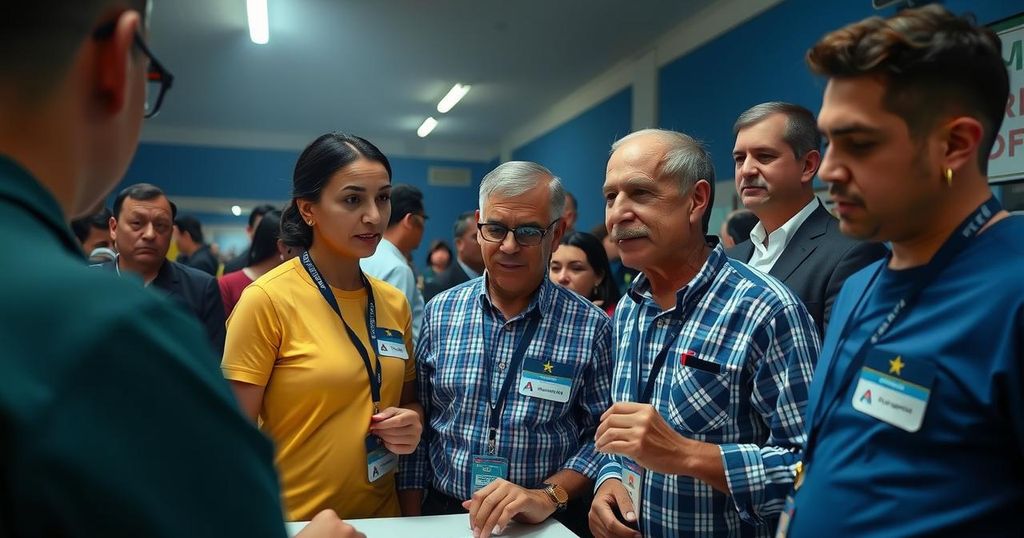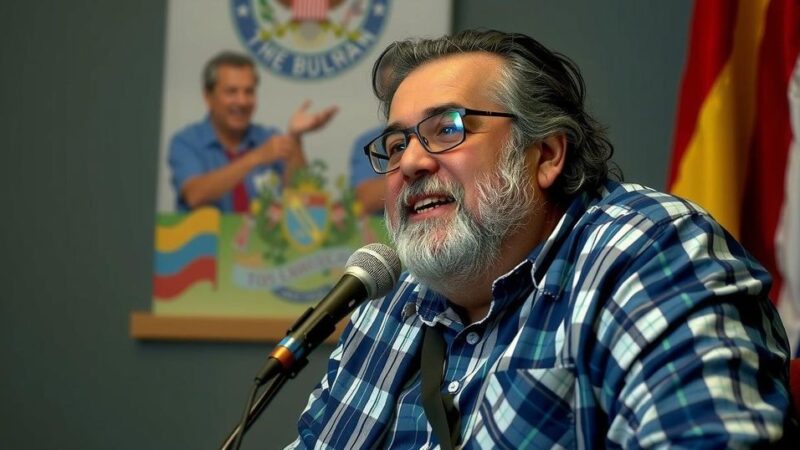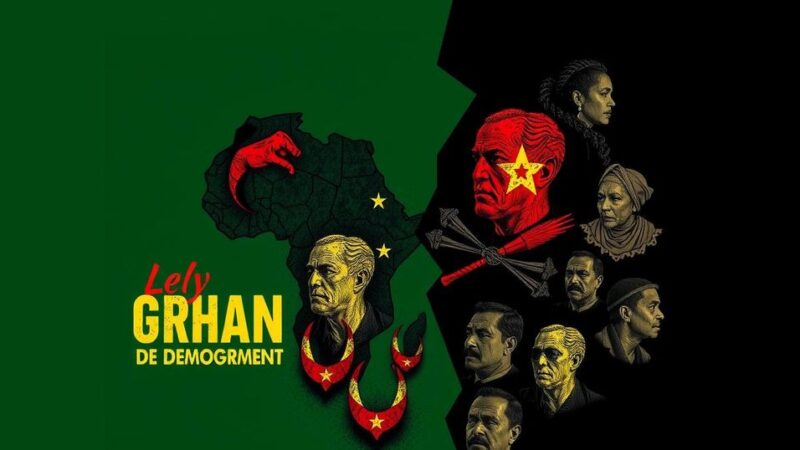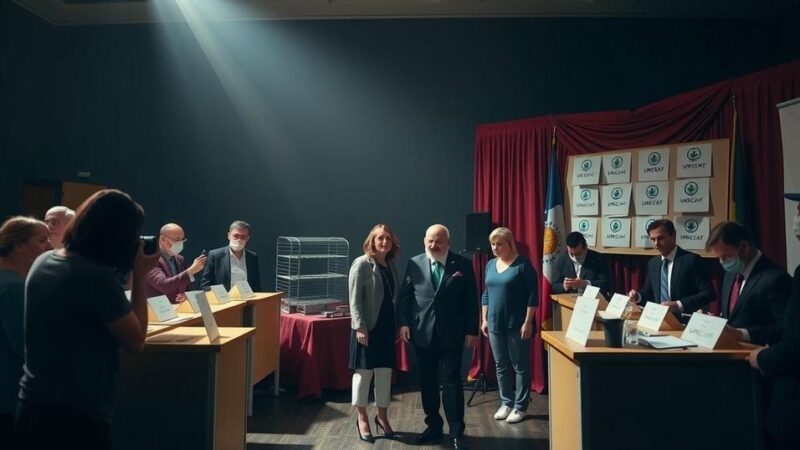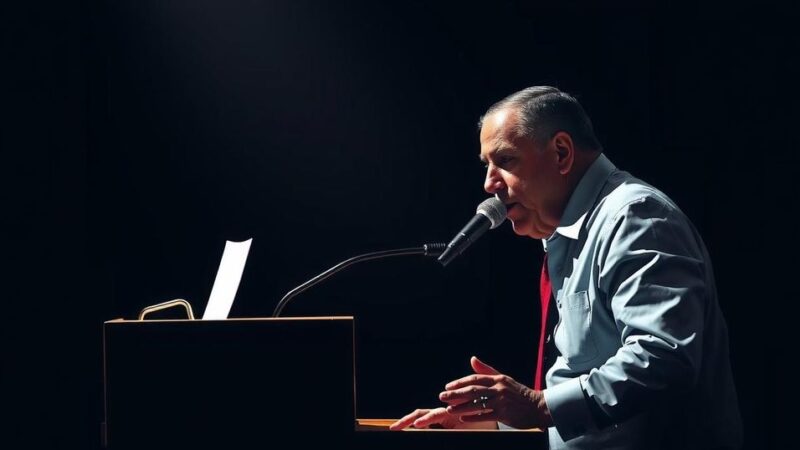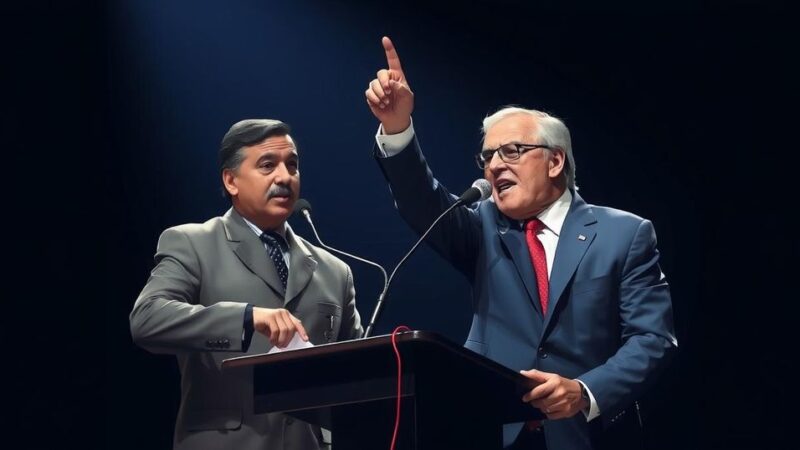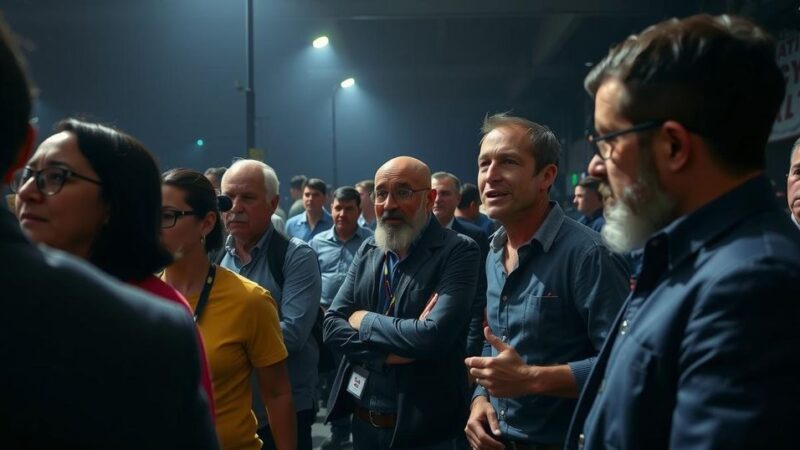Uruguayans are voting in a crucial presidential run-off election, with leftist candidate Yamandu Orsi challenging right-wing candidate Alvaro Delgado. With sentiments reflecting national and global dissatisfaction with the current government, the race appears tightly contested with significant implications for the nation’s political landscape. Voter engagement and turnout could be decisive in this election, with only minor policy shifts proposed by both candidates.
Uruguay is currently engaged in a pivotal presidential run-off election, with voters choosing between the leftist candidate Yamandu Orsi from the Frente Amplio (Broad Front) and Alvaro Delgado of the National Party. These elections follow five years of right-wing government, with Orsi supported by the renowned former President Jose Mujica aiming for a return to power. The political climate in Uruguay remains comparatively stable, with polls indicating a tightly contested race, potentially decided by a mere 25,000 votes.
The elections commenced with voting stations opening at 8:00 AM and closing at 7:30 PM local time. Preliminary results are anticipated two hours after polling ends. Opinion polls prior to the elections indicated a narrow margin between the candidates, with Orsi capturing 43.9 percent of the votes in October, while Delgado secured 26.8 percent. This contest contrasts sharply with more polarized elections in neighboring countries, suggesting less of a confrontation between left and right factions.
The outgoing President, Luis Lacalle Pou of the Republican Coalition, has maintained a favorable approval rating of around 50 percent; however, concerns persist regarding crime under his administration. Adding to the complexity of the election is the absence of any new significant policy proposals from either candidate during the final weeks, with many voters expressing uncertainty about their choices. Orsi intends to uphold a moderate policy approach, while Delgado seeks to maintain the momentum of the current government, urging voters to support continuity.
Both candidates are vying for the attention of approximately 8 percent of first-round voters who favored smaller parties or abstained in October. Notably, some commentators have observed that the recent televised debate may not have substantially influenced voter decisions. Amidst an atmosphere of rising global discontent with ruling parties, the outcome of this election could serve as an indicator of whether Uruguay will follow suit or maintain its past voting trends.
This presidential run-off election is critical for Uruguay, occurring after five years under a right-leaning administration. The nations’ approximately 3.4 million residents face a significant decision: support the leftist Frente Amplio seeking a return to power, or continue with the National Party’s current trajectory. While the political environment in Uruguay has historically been more moderate than in other Latin American countries, recent elections reflect global trends of voter discontent, necessitating keen attention to the voters’ sentiments regarding economic issues such as inflation and living costs.
In conclusion, the outcome of Uruguay’s upcoming presidential run-off election holds considerable significance. With the leftist candidate Yamandu Orsi aiming to reclaim power after years of right-wing governance, this election’s results will not only shape the country’s future policies but will also reflect broader electoral trends observed globally. The tight competition between Orsi and Delgado underscores the critical involvement of voters who are increasingly disenchanted with political incumbents amidst rising living costs, setting the stage for a potentially transformative electoral outcome.
Original Source: www.aljazeera.com
